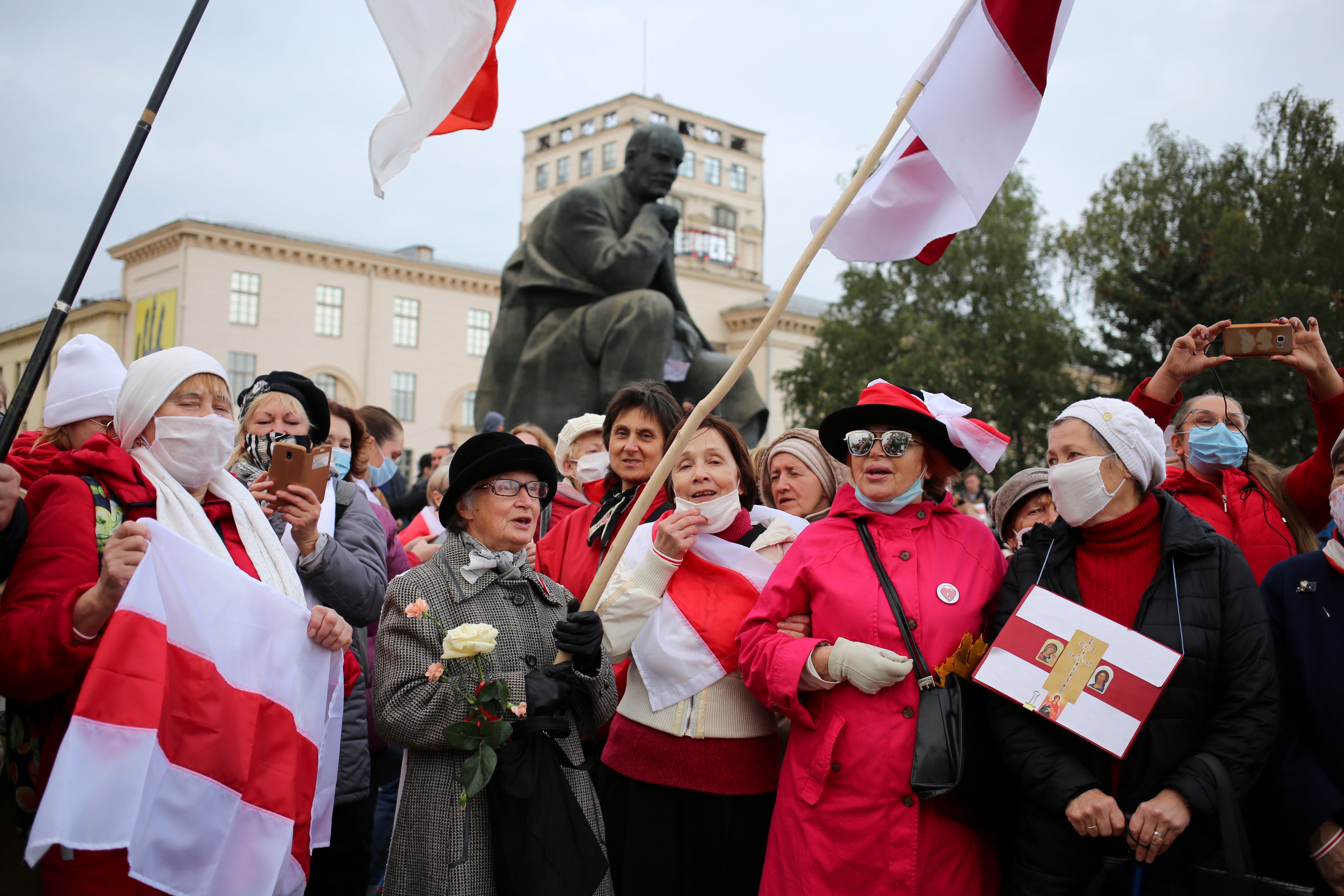Strikers in Belarus press for authoritarian leader's ouster
Factory workers, students and owners of small businesses in Belarus have started a strike to demand that authoritarian President Alexander Lukashenko resign after more than two months of protests following a disputed election

Your support helps us to tell the story
From reproductive rights to climate change to Big Tech, The Independent is on the ground when the story is developing. Whether it's investigating the financials of Elon Musk's pro-Trump PAC or producing our latest documentary, 'The A Word', which shines a light on the American women fighting for reproductive rights, we know how important it is to parse out the facts from the messaging.
At such a critical moment in US history, we need reporters on the ground. Your donation allows us to keep sending journalists to speak to both sides of the story.
The Independent is trusted by Americans across the entire political spectrum. And unlike many other quality news outlets, we choose not to lock Americans out of our reporting and analysis with paywalls. We believe quality journalism should be available to everyone, paid for by those who can afford it.
Your support makes all the difference.Factory workers, students and business owners in Belarus on Monday began a strike to demand that authoritarian President Alexander Lukashenko resign after more than two months of continuing mass protests following a disputed election.
Most state-run enterprises continued to operate despite the strike, which was called by opposition leader Sviatlana Tsikhanouskaya But analysts said it helped mobilize opposition supporters for a new round of confrontation with authorities, which poses a significant challenge for Lukashenko, who has run the country for 26 years and until recently has been able to successfully stifle dissent.
Students in some universities refused to attend lectures and marched in Minsk in protest. Hundreds of small private companies declared Monday a nonworking day, and shops and cafes closed, with their owners and employees forming human chains all over the capital.
Several divisions of large plants in Minsk said they were halting work, and employees of two plants in the western city of Grodno gathered in front of buildings there.
The authorities responded by detaining protesters in the streets and outside factories, threatening workers with jail or being fired if they went on strike, said Alexander Yaroshuk, leader of the Belarusian Congress of Democratic Unions, an association of independent labor unions.
Thousands of retirees also marched in Minsk in their regular Monday protest to demand Lukashenko's ouster. They chanted for him to “Go away!”
“We don’t see, hear or run well, but we understand perfectly well that Lukashenko lost,” read one of the banners carried by the pensioners.
The unrest was triggered by the results of the Aug. 9 election, which officials reported gave Lukashenko a landslide victory over Tsikhanouskaya. She and her supporters refused to recognize the results, and mass protests have rocked the former Soviet nation of 9.5 million almost daily ever since.
The authorities tried to quell the turmoil by detaining thousands and violently dispersing the crowds, but the protests have continued.
Tsikhanouskaya, who fled to Lithuania for fear of her safety, urged the strike if Lukashenko did not resign, release political prisoners and stop the police crackdown by Monday. She gave the go-ahead for the strike to begin in a statement Sunday night after police in Minsk and other cities once again dispersed demonstrators with stun grenades and tear gas.
Sunday's rally in Minsk was one of the largest in weeks and drew nearly 200,000 people. Smaller protests also took place in other cities, and the Interior Ministry said it detained over 500 people across Belarus.
“A strike is the next step towards freedom for Belarusians, towards the end of violence and new elections,” Tsikhanousksaya said in a statement Monday. “The main goal is to show that no one will work for the regime.”
Government officials said that all state-run plants, factories and enterprises continued to operate as usual.
In August, the government stemmed a strike at dozens of plants and factories in several cities. Lukashenko, who at one point was booed by workers when he visited a plant, is trying to avoid a repeat through repressions against plant workers, Yaroshuk said.
“People have things to lose, so the majority remains intimidated and continues to work under pressure,” the activist added.
Still, the opposition managed to mobilize its active supporters, said Minsk-based political analyst Valery Karbalevich.
“Even the threat of a strike makes Lukashenko nervous, and growing mass rallies show that the protest is not dying down, and the pressure on the authorities and officials within the country will continue to mount,” he said.